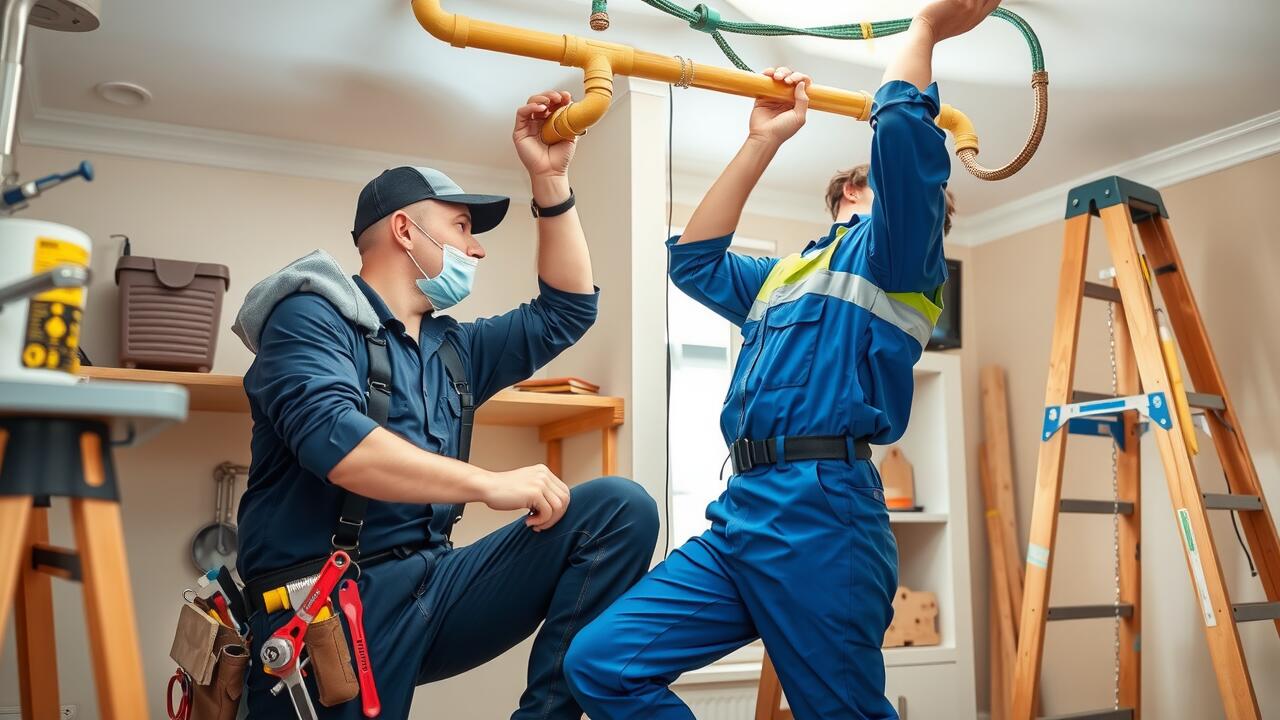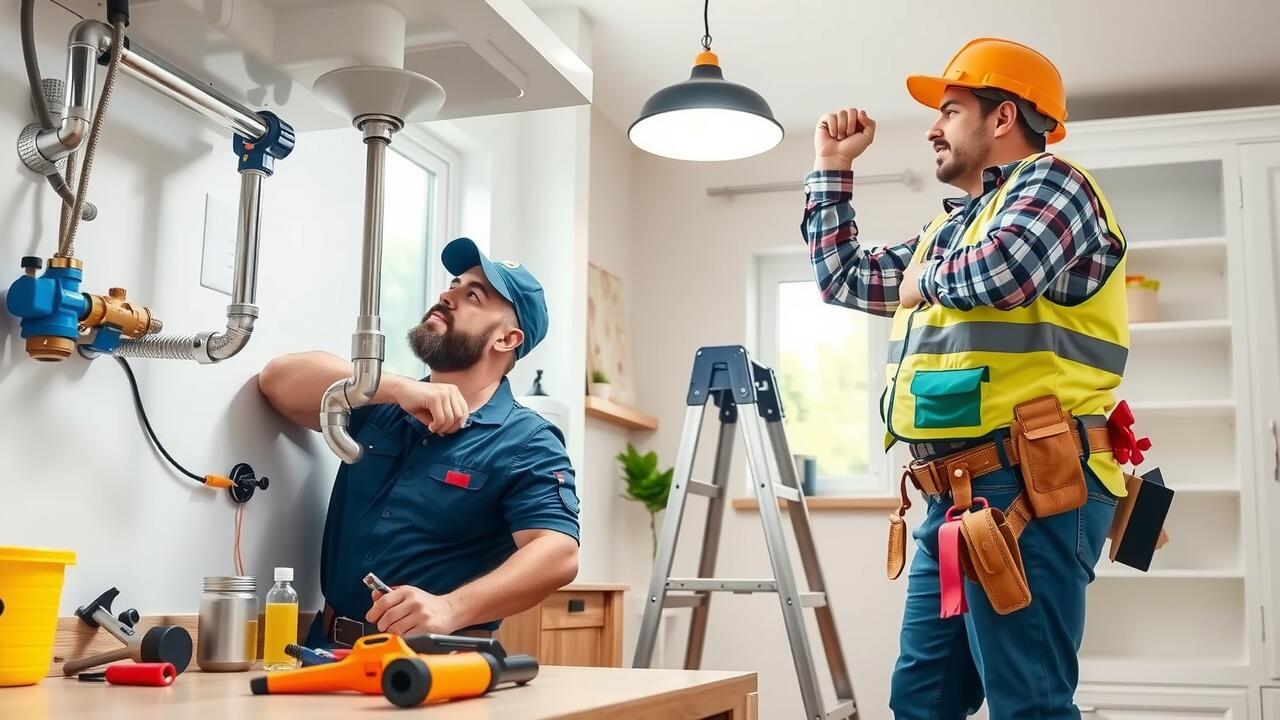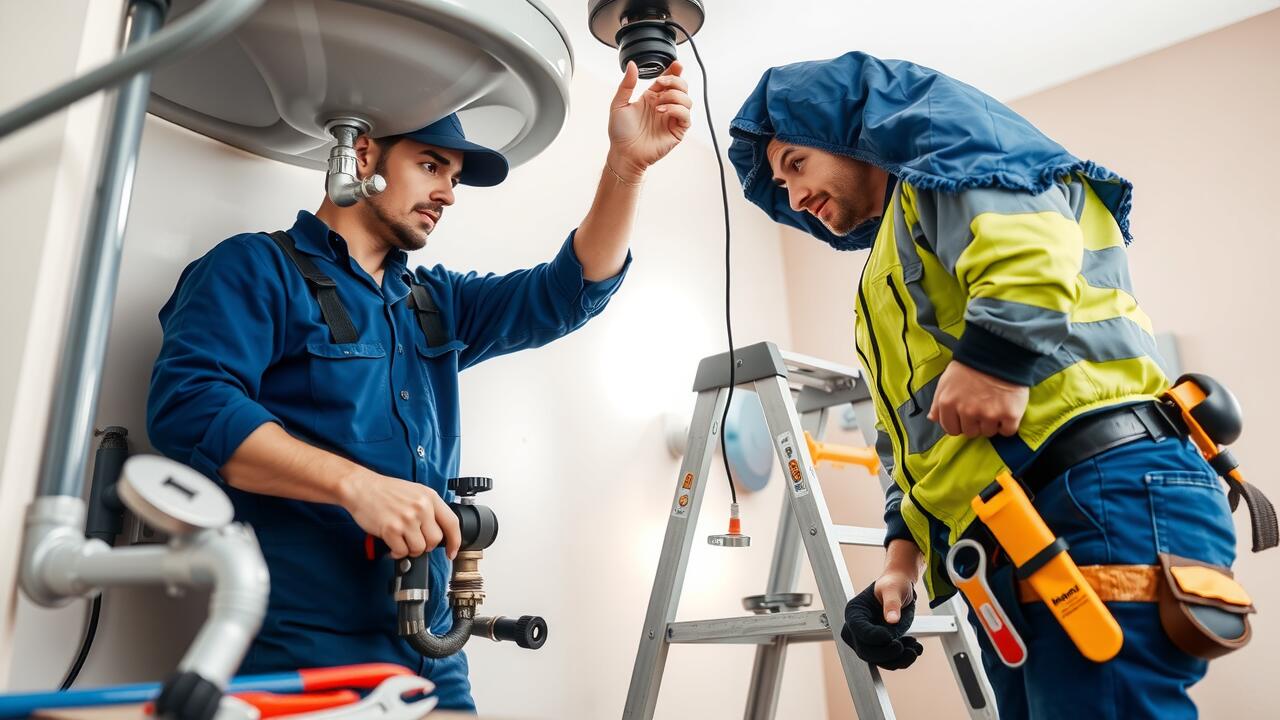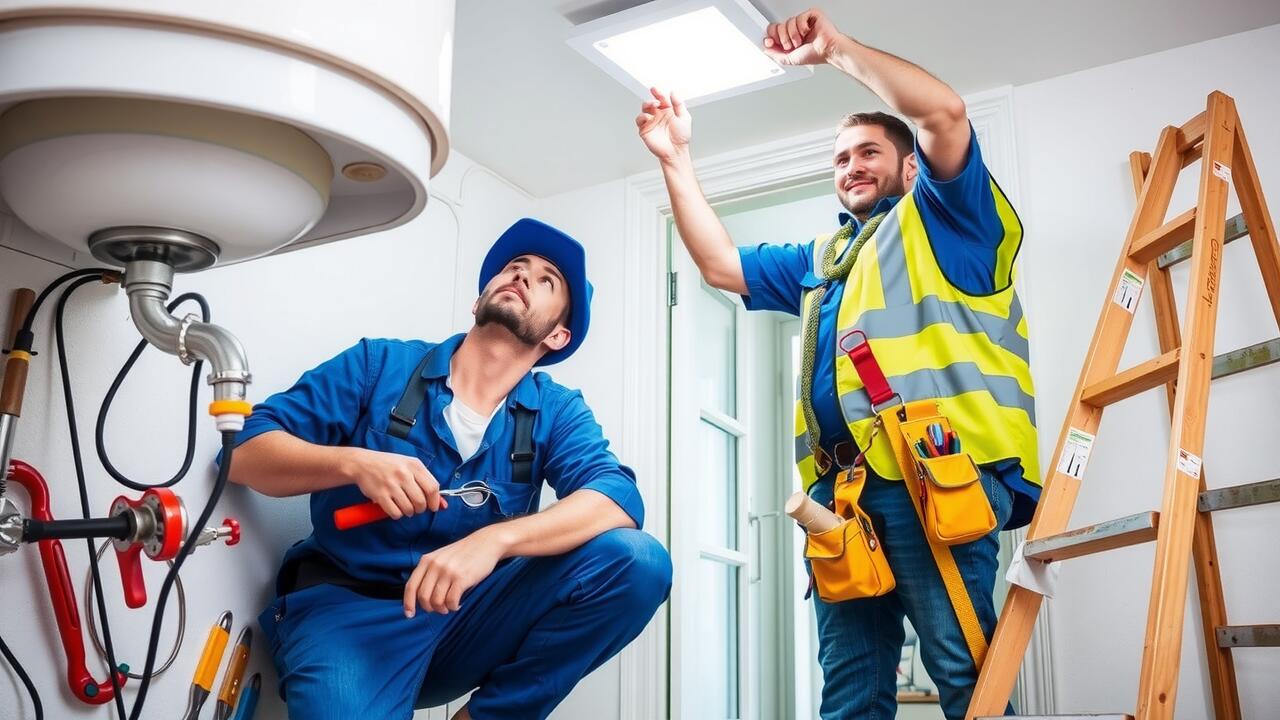
When to Call a Plumber vs. an Electrician
When faced with a home repair issue, it is essential to identify whether the problem falls under the domain of plumbing or electrical work. Plumbers are the go-to professionals for issues related to water supply, drainage, and heating systems. Common plumbing problems include leaking taps, blocked drains, and faulty boilers. In contrast, electricians should be consulted for concerns involving wiring, circuit breakers, and lighting installations. Each trade requires a specific set of skills and knowledge, making it crucial to determine the nature of the problem accurately.
In areas like Joiner's Square, Stoke-on-Trent, the distinction between these two trades becomes especially relevant. Homeowners may encounter scenarios where both plumbing and electrical systems interact, such as in the case of electric showers or heated towel rails. Recognising which professional to call can save time and ensure that the issue is addressed effectively. Engaging the correct expert not only leads to a proper resolution but also ensures safety, as both plumbers and electricians adhere to strict regulations within their respective fields.
Identifying the Right Professional for the Job
Choosing the right professional for a specific job is paramount to ensuring successful outcomes. For tasks that involve plumbing and electrical work in Eaton Park, Stoke-on-Trent, it is crucial to identify whether a plumber or an electrician is needed based on the nature of the issue. Plumbers typically handle problems related to water supply, drainage, and heating systems. Electricians, on the other hand, are trained to deal with electrical wiring, circuit installations, and safety inspections.
Assessing the problem at hand can help clarify which specialist to engage. Simple plumbing leaks or blockages call for a plumber's expertise, while issues regarding power outages or malfunctioning systems require an electrician's skill set. Recognising these distinctions not only saves time but also assures that the work adheres to safety standards and regulations specific to plumbing and electrical work in Eaton Park, Stoke-on-Trent.
Training and Qualifications
Plumbers and electricians undergo distinct training programmes that equip them with the specialised skills necessary for their respective trades. Aspiring plumbers typically complete a combination of classroom instruction and hands-on apprenticeship, often spanning several years. This training equips them to handle various plumbing systems and understand the intricate layout of pipes and fixtures. Electrics, on the other hand, usually require a thorough understanding of electrical systems, circuitry, and safety regulations. Electricians also engage in significant practical training through apprenticeships, ensuring they are well-prepared for the challenges of their profession.
In Abbey Hulton, Stoke-on-Trent, the qualifications for plumbers and electricians are tightly regulated. Both professions require certification from recognised bodies to ensure compliance with national standards. A qualified plumber, for example, will be registered with a body such as the Chartered Institute of Plumbing and Heating Engineering (CIPHE), while electricians might adhere to regulations set out by the Institution of Engineering and Technology (IET). This regulatory framework ensures that professionals are up to date with the latest technology and safety practices, enhancing the quality of service provided in the area.
How Plumbers and Electricians are Trained
Plumbers typically undergo an apprenticeship that combines classroom learning with hands-on experience. They study various aspects of water supply, drainage systems, and gas fitting. Certification and licensing requirements vary, but many regions mandate completion of a recognised training programme and passing an exam. This process equips them with the skills necessary to tackle plumbing challenges safely and effectively. Plumbing and electrical work in Abbey Hulton, Stoke-on-Trent, requires a solid understanding of local regulations and standards.
Electricians also pursue a structured training path, which often includes an initial apprenticeship followed by further study in electrical theory, wiring, and safety protocols. They learn to interpret electrical blueprints and understand regulatory codes pertinent to their profession. In many cases, electricians must also obtain certification before working independently. Both professions require ongoing education to keep up with advancements in technology and changing regulations, ensuring they are well-prepared for the complexities of their respective fields.
Cost Considerations
When assessing costs for plumbing and electrical work in Basford, Stoke-on-Trent, it’s important to recognise that rates can vary significantly between the two trades. Plumbers typically charge based on the complexity of the task, the materials required, and the time involved. Hourly rates may start from a baseline but can increase depending on factors such as emergency call-outs or specialised services. In contrast, electricians often have a different pricing structure that reflects their unique qualifications and the complexity of electrical systems.
Homeowners should also consider the scope of the project when evaluating costs. Smaller plumbing issues like a leaky tap may only require a minimal investment. Larger tasks involving full installations or repairs can quickly escalate in price, especially if both plumbing and electrical work in Basford, Stoke-on-Trent, is needed. Obtaining detailed quotes and clarifying what is included in the cost can help avoid any unpleasant surprises. It's wise to factor in potential additional expenses for permits or inspections that may arise, particularly for electrical work, as strict regulations govern this field.
Comparing Rates for Plumbing and Electrical Services
When comparing rates for plumbing and electrical services, it's essential to consider the average cost in your area. Plumbing and electrical work in Eaton Park, Stoke-on-Trent, typically reflects local market conditions, the complexity of the task, and the professional's expertise. Plumbing jobs often have variable pricing based on the type of issue, with emergency call-outs generally incurring higher fees. Electricians may charge similarly, but their rates can vary significantly depending on factors such as the scope of work and the materials required.
Additionally, service rates might shift based on whether you require a standard repair, installation, or more specialised tasks. Many professionals offer free quotes, which can aid in understanding the financial implications before committing to any service. It's worthwhile to assess the value offered by each trade, as experience and qualifications can greatly influence costs. Understanding these aspects helps ensure that you select the right professional for your plumbing and electrical needs without compromising on quality or safety.
FAQS
Can a plumber legally perform electrical work?
In the UK, plumbers are not legally allowed to carry out electrical work unless they are qualified electricians or have received appropriate training and certification to do so.
What types of jobs can a plumber do?
Plumbers typically handle tasks related to water supply and drainage systems, such as fixing leaks, installing pipes, and maintaining heating systems. They are not trained for electrical installations or repairs.
How do I determine whether to hire a plumber or an electrician?
If your issue involves plumbing, such as leaks, clogs, or heating system problems, you should call a plumber. For issues related to wiring, circuits, or electrical installations, you should contact a qualified electrician.
Are there any exceptions where a plumber can do electrical work?
There may be some minor electrical tasks that a plumber can perform, such as installing a power supply for an electric water heater, but this should only be done if they are certified to do so.
How much do plumbing and electrical services typically cost?
The cost of plumbing and electrical services can vary widely depending on the complexity of the job and the professional's experience. It’s best to obtain quotes from both plumbers and electricians to compare rates for your specific needs.




